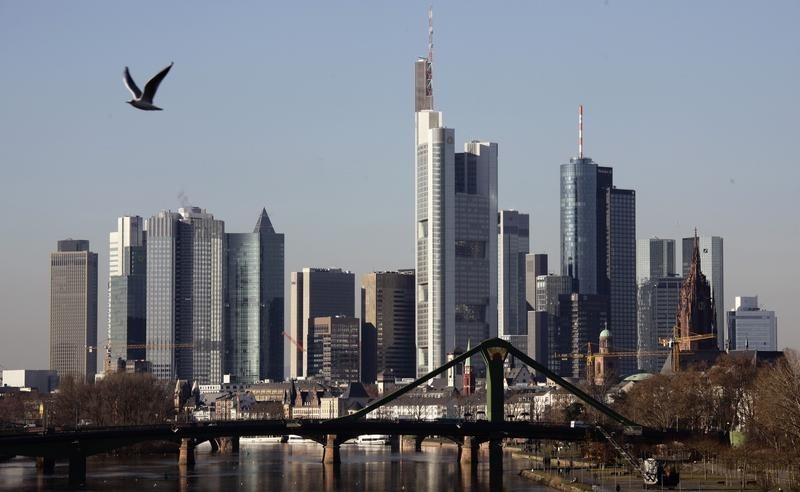By Kirsti Knolle and John O'Donnell
MANNHEIM, Germany (Reuters) - German analyst and investor sentiment climbed in February for a fourth consecutive month to its highest level in a year, helped by the European Central Bank's bond-buying programme, though the Ukraine crisis and Greek turmoil weighed on expectations.
Mannheim-based think tank ZEW said on Tuesday its monthly survey of economic sentiment rose to 53.0 in February from 48.4 in January. That was slightly below the Reuters consensus forecast of 55.0.
"Quantitative easing by the European Central Bank and unexpectedly high economic growth in the fourth quarter of 2014 have improved sentiment among financial market experts," said ZEW President Clemens Fuest.
The German economy finished 2014 on a strong note, with data last week showing the economy grew by 0.7 percent at the end of the year. It also fared well at the start of 2015, with growth in the private sector picking up and the jobless rate falling to a record low.
"On the other hand, the intensification of the Ukraine crisis and the collision course of the new Greek government are dampening expectations," Fuest said.
The survey of 227 analysts and investors was conducted between Feb. 2 and 16, before Greece rejected a European proposal for a six-month extension of its bailout, calling the country's future in the euro zone into question.
The German economy finished last year on a strong note and also fared well at the start of 2015, with growth in the private sector picking up and the jobless rate falling to a record low.
Ralf Umlauf, economist at Helaba, said lower oil prices and a weaker euro likely contributed to the improved mood.
"The numbers underscore the positive expectations for German growth in 2015," he said.
The German government has forecast growth of 1.5 percent for this year.
A separate gauge of current conditions increased to 45.5 from 22.4 in January, surpassing by far a consensus forecast for a reading of 30.0 and hitting its highest level since July 2014.
